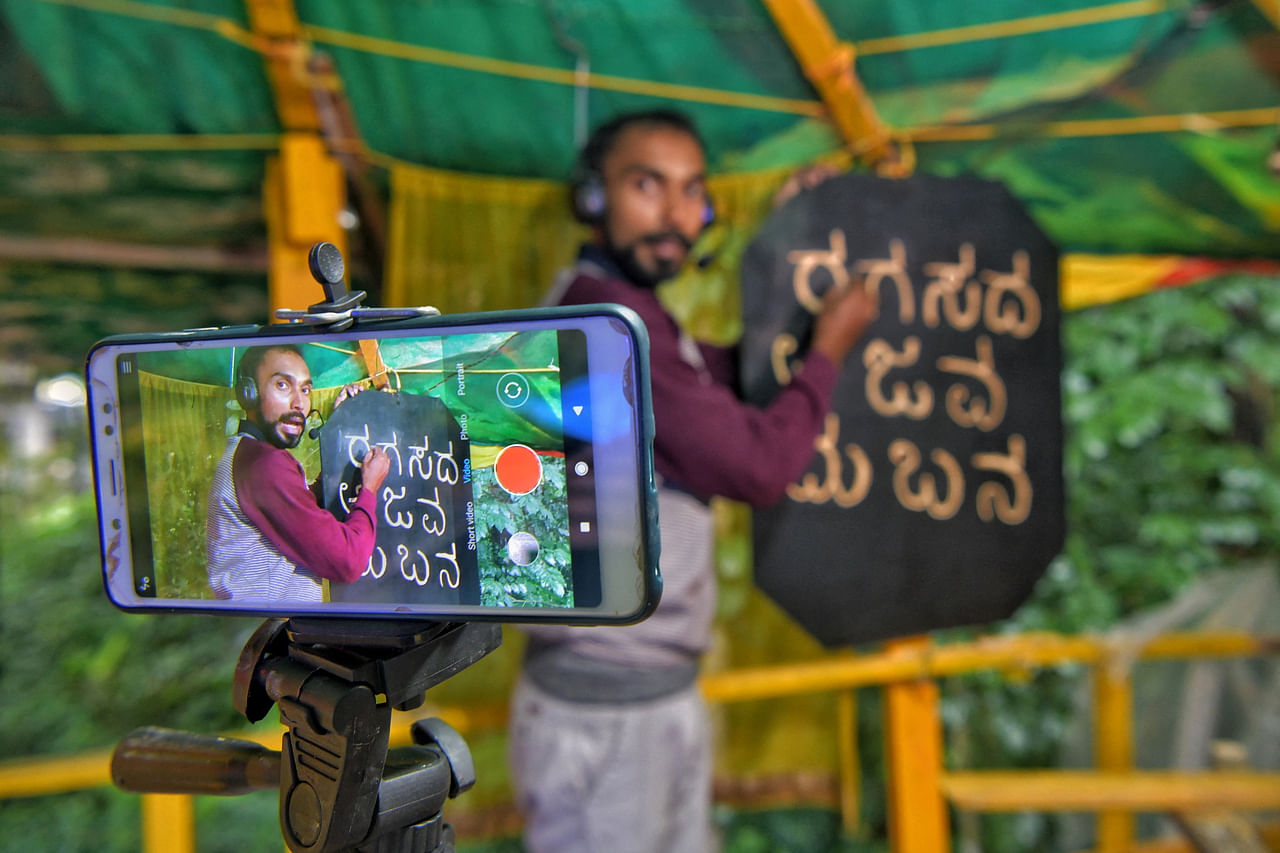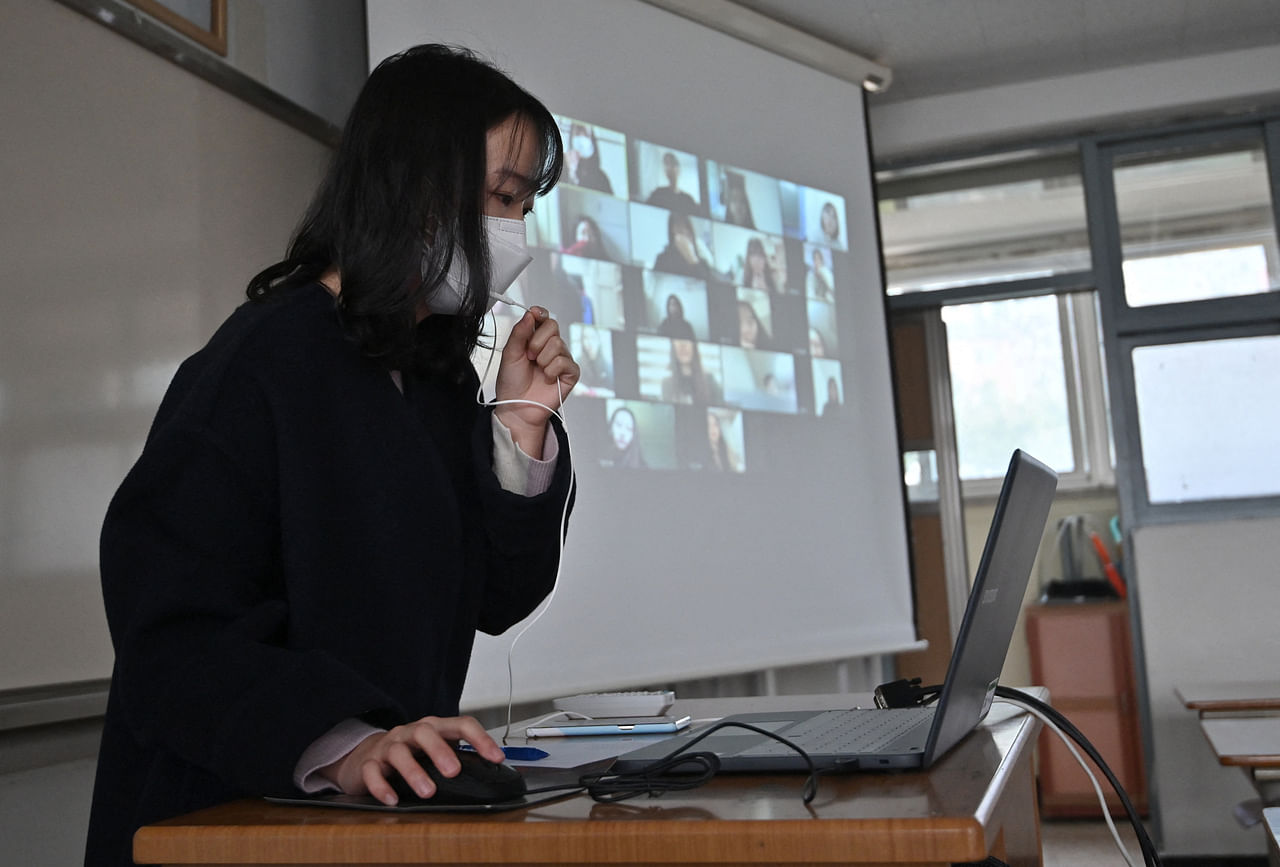Edtech firms in India set for shake-up of sector

While most businesses took a hit during the Covid-19 pandemic, Indian firm BYJU'S grew to become the world's largest edtech company.
The company's virtual lessons in maths and science had since 2011 supplemented in-school classes for students, but as the pandemic shut schools across India, edtech firms stepped in to plug gaps in conventional education that struggled to move online.
Private online classes became a necessary go-to for those who could afford it, and BYJU'S, as an early player, reaped the benefits. In June 2020, the firm's valuation jumped to a decacorn status - companies valued at more than US$10 billion (S$14 billion) - as parents flocked to edtech offerings.
'Out of the box' learning with Indonesian start-ups

Indonesian housewife Delores Mia Monorica, 43, began to use a one-year animation learning package by education technology (edtech) start-up Ruangguru in July to help her eldest daughter, Ibrenna Mirkaela Simanjuntak, study at home.
Earlier the same month, eight-year-old Mirkaela quit formal education before she was to start her third year in primary school to be home-schooled, as her parents want her to focus on character building and study according to her talents and interest.
Now, every day, she watches short videos, which teach mathematics and Bahasa Indonesia through storytelling, and does exercises for around an hour. Her other activities include reading, writing and drawing. She learns to read in English using an app called Epic.
Online tools to keep enhancing learning in Singapore

Students and teachers had to quickly pivot to home-based learning (HBL) when the Covid-19 pandemic struck in 2020 but the switch to digital learning platforms is not likely to slow down.
Although face-to-face lessons have now resumed, teachers have retained the use of technology in classrooms by using online tools like Slido, with its live polls and quizzes, and the virtual bulletin board Padlet to make learning more interactive.
The plan to take Singapore's classrooms into the digital age took root in 1997 when the Thinking Schools, Learning Nation initiative was rolled out.
The focus was towards integrating technology in the classrooms.
In education-obsessed South Korea, edtech is a $10b business

If a student is stumped by a maths problem, South Korean start-up Mathpresso can help.
Founded in 2015, the company operates Qanda (literally "Q and A"), a learning app powered by artificial intelligence (AI).
The student needs only to scan a photo of the problem and the app's cutting-age technology will search for the right answer.
Riiid, another start-up, uses AI to help users prepare for the Test of English for International Communication, an international English proficiency test for non-native speakers, while Alux, also a start-up, uses robots to teach coding.
Some edtech firms in China rebound after crackdown

Following a clampdown on the educational technology industry last year to reduce inequality, e-tutoring companies that had profited hugely from parents wanting their children to shine have either folded or pivoted to other businesses like selling agricultural produce through live streaming.
Others are looking at ways to quietly restart operations given continued demand for such services, driven by flash Covid-19-linked lockdowns that have resulted in classes moving online.
In a shock move in July last year, the Chinese government announced new rules that require companies tutoring in core school subjects to restructure into not-for-profit ones while also banning foreign investment in the sector.
The policy was aimed at reducing students' workloads and easing parents' financial burdens, the government said. This came after the industry had become rife with unscrupulous practices such as false advertising, over-promising of results, and excessive pricing which meant the most underprivileged children were increasingly excluded.

